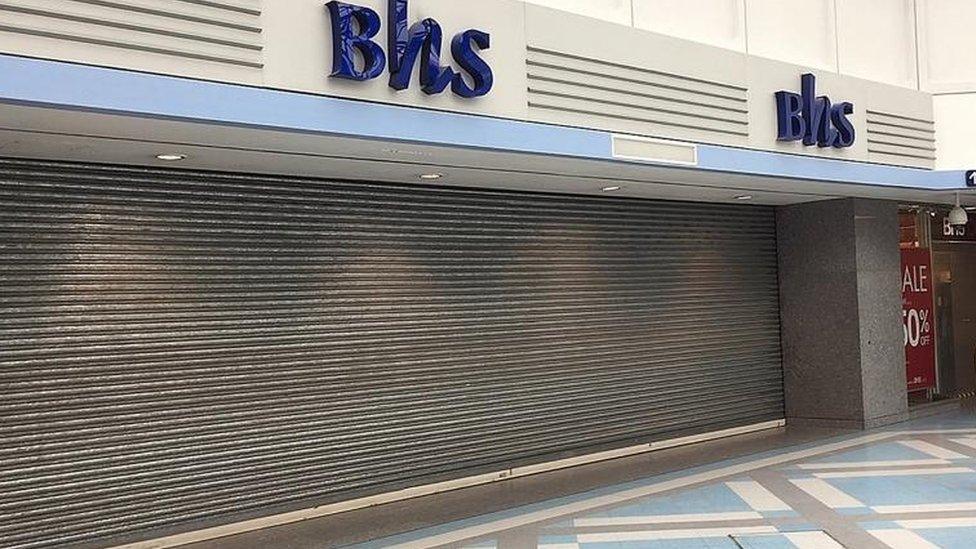The troubled world of BHS
- Published
- comments

In one way the story of BHS is not unique. It is an everyday tale of commerce - healthy businesses thrive, sickly ones perish, the High Street evolves - that's life.
In many others it is not. It is also the story of two controversial owners.
Sir Philip Green bought BHS for £200m in 2000 and in the early years it made profits. All of these profits were taken out, quite legally, in dividends in the years up to 2004.
BHS then limped along for another decade through a recession, being kept alive by loans from the rest of Sir Philip Green's empire until it was sold last year for just £1.
Probes
It would have taken a retail magician to conjure up a recovery for a tired brand in a super-competitive field. Instead he sold it to a previously bankrupt racing driver with some business but no retail experience whatsoever.
Hopes of finding a buyer faded when it emerged that none of the potential bidders could commit sufficient working capital to restock the shops and reboot the business.
In the same week as Austin Reed suffered the same fate, it is tempting to see both casualties as symptomatic of a wider High Street malaise.
It's true that footfall has been falling for many years, but nimble retailers who have combined online with bricks and mortar and have improved the in-store experience have flourished. Both Austin Reed and BHS's offerings were considered tired by retail experts.
It's a tough world out there but you can survive. What's clear is that there are some troubling aspects to the BHS liquidation that MPs, the Insolvency Service and potentially the Serious Fraud Office may continue to probe, possibly long after BHS has closed its doors.